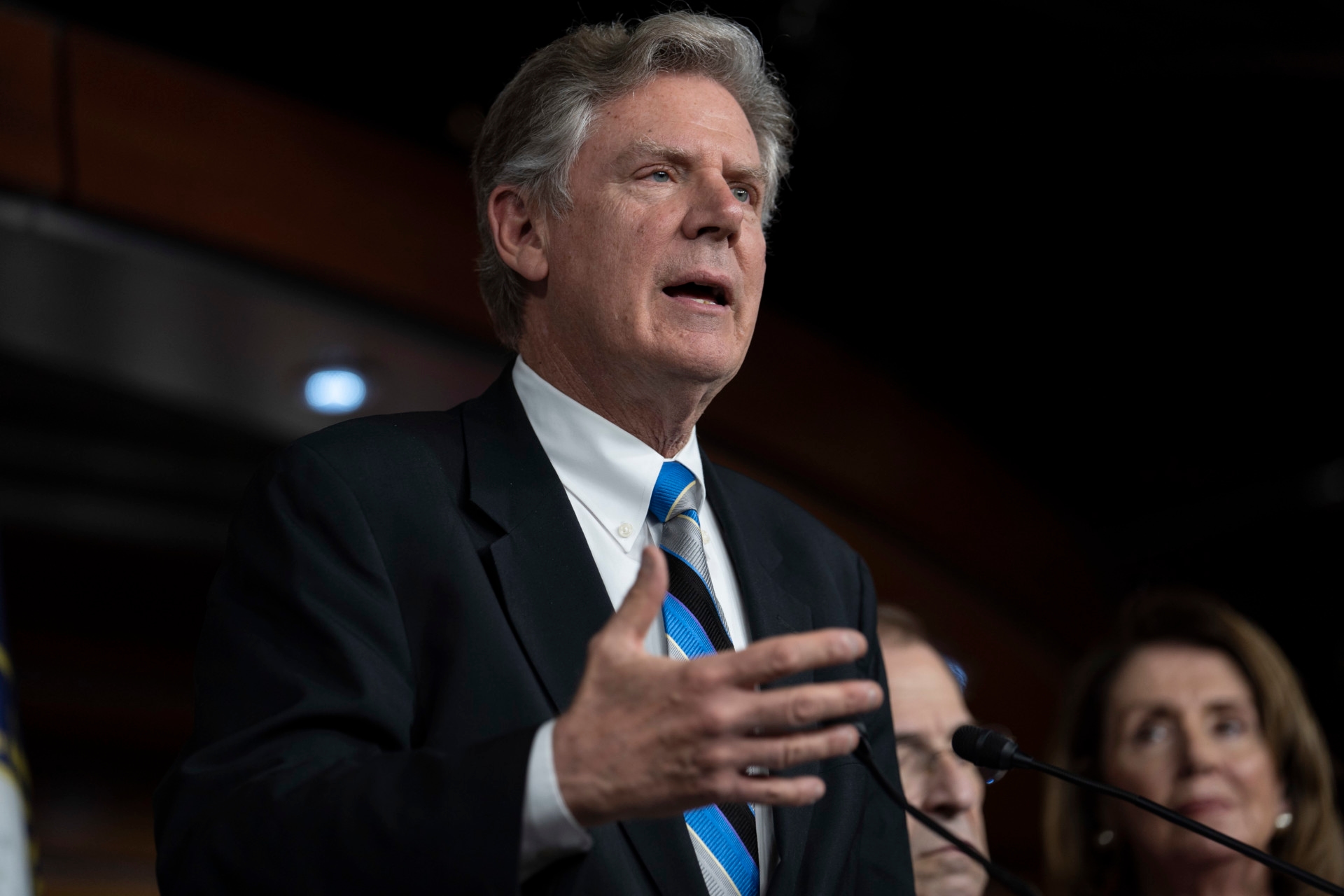House Energy and Commerce Chair Hopes to Introduce Robocall Bill Draft Next Week

House Energy and Commerce Chairman Frank Pallone (D-N.J.) said during a USTelecom event in Washington on Tuesday that he hopes to introduce a bipartisan bill draft addressing how to combat illegal robocalls to his committee next week -- nearly a month after the Senate passed related bipartisan legislation that aims to do just that.
Pallone said the committee is “pretty close” to creating a draft that would garner bipartisan support, but “we’re not there yet,” noting that the panel met a few weeks ago to discuss which issues it could feasibly work on with advocates on both sides of the aisle.
“This is an issue that I hear probably more about than almost anything else when I go home because people are so annoyed by the rising number of robocalls,” Pallone said. “Congress has to act.”
While Pallone told the audience that he couldn’t speak to how quickly the legislation could pass through the committee or what the final product could look like, the new bill will go beyond the language in his own draft -- called the Stopping Bad Robocalls Act (H.R. 946) -- which was introduced in February and lays out a nationwide call authentication system.
Pallone and a spokesperson for the Energy and Commerce Committee declined to answer follow-up questions at the event after the announcement.
The updated timeline follows other moves on robocalls: In May, the Senate passed in a 97-1 vote the Telephone Robocall Abuse Criminal Enforcement and Deterrence Act (S. 151) -- introduced by Sen. John Thune (R-S.D.), head of the Senate Commerce’s communications subcommittee, and co-sponsored by 84 members, including Sen. Ed Markey (D-Mass.). The bill would allow the federal government to fine illegal callers up to $10,000 per call.
A House counterpart (H.R. 1602) by the same name was introduced by Rep. David Kustoff (R-Tenn.) in March, then reintroduced as H.R. 2015 the following month, but has not moved beyond an introduction. A spokesperson for Kustoff said the congressman is working with Pallone to get the bill moving forward.
“Without question, if there are no other bills signed into law this year by the president, there will be one on robocalls,” Markey said during his public remarks at Tuesday’s event.
Last week, the Federal Communications Commission passed an order that gives telecommunications companies the green light to automatically enroll customers in robocall blocking programs.
Without question, if there are no other bills signed into law this year by the president, there will be one on robocalls.
According to the latest data from call-blocking app YouMail, more than 43 percent of all robocalls are spam, or those that seek to cull or manipulate information from unsuspecting consumers. The second-largest portion of robocalls are made up of alerts and reminders, such as automated calls from physicians’ offices to remind patients of their appointments, which YouMail estimates makes up nearly 23 percent of all robocalls.
Patrick Halley, senior vice president of advocacy and regulatory affairs at USTelecom, which endorsed the Senate’s legislation, told Morning Consult following the event that the trade association is optimistic that House legislation will soon emerge on the issue and be signed into law this year.
The House is examining the issues included in the Senate’s TRACED Act “and some of their own issues, and anything that makes it easier to go after illegal robocallers, whether it be modifying the FCC’s authority in helpful ways, or making it easier to go after illegal robocallers -- not just for civil penalties but criminal penalties -- is really important,” Halley said.
During the USTelecom event, FCC Chairman Ajit Pai said the commission will hold a summit on robocalls on July 11 with key stakeholders. Answering questions following his public appearance, Pai said he was encouraged by the support for regulating robocalls on the congressional level.
“We saw with the TRACED Act over on the Senate side that there’s some bipartisan momentum in getting a bipartisan solution done,” Pai said. “We’re hopeful that this bipartisan spirit carries through into actual enactment at the end of the day.”
Correction: A previous version of this story misstated a quote by Ajit Pai.
This story has been updated to include information about the reintroduced House TRACED Act counterpart.
Sam Sabin previously worked at Morning Consult as a reporter covering tech.